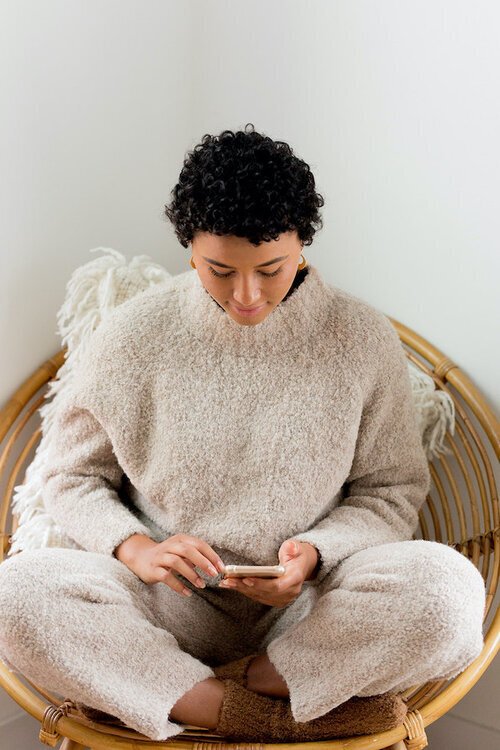Your Guide To Finding A Therapist
We cannot do it all alone.
There have been many different chapters in my life where the pain rooted deep inside my subconscious from my past bubbled to the surface—and I was not able to move forward without external guidance in the form of therapy. I have thought a lot about how we are conditioned to pull ourselves up by our bootstraps, put a smile on, and keep trudging forward. The trouble with always trudging forward is that we forget to evaluate our feelings in the midst of all that is happening around us. Those feelings become buried in our subconscious until they show up in other ways, often through sickness, anxiety, and depression.
Finding a therapist can feel daunting and vulnerable, the thought of pouring your heart out to a stranger feeling strange and uncomfortable. However, a therapist’s external point of view outside of our own cluttered mind can be an essential part of guiding us into a deeper understanding of ourselves—and a key to living our healthiest lives.
Where To Start?
Finding a therapist is going to take a lot of patience in order to find one that fits your financial and emotional needs. First, begin by determining what your needs actually are. Are you needing emotional support to help work through depression, anxiety, or feelings of low self-esteem? Or are you needing more directional help through life coaching? Therapists’ goals are to meet you right where you are in life to help guide you through the challenges; however, some might specialize in different approaches.
The next step is to check with your insurance and confirm what benefits you have. Once that is determined you can either go directly through your insurance’s website, though they don't always give you all of the information about each provider. Psychology Today is a wonderful resource for customizing your search and filtering your needs. It also allows you to reach out personally to the therapists that interest you.
Another way to begin the search is to talk to friends and family who work with a therapist and ask if their therapist can offer referrals. If speaking to someone in person makes you feel uncomfortable or is too costly, there are also online therapy options like Talkspace and Betterhelp that allow you to choose your emotional needs and then walks you through a questionnaire to determine a virtual person who is a good fit for you.
Set Up A Trial Period
Once you have emailed a few therapists that interest you, you can set up phone meetings with each one. Again, stay patient; if you start to talk yourself out of needing therapy because the process feels too daunting, remind yourself of the darkness that you have had to overcome alone and how much better you will feel once you talk through all that is hindering you.
To get the most out of your free phone consultations, have questions ready for your therapist that will help you get a better understanding of what working with them will look like.
A few examples of questions to ask:
What is your approach to therapy? Are you more directive or more guiding?
Can you tell me how you would go about working with someone with my needs?
How long have you been practicing?
Based off of my circumstances, how long will we need to work together?
What does a typical session look like working with you?
What are your rates, what insurance do you accept, do you offer a sliding scale pay structure, etc.
Keep in mind that through this search you may find someone who is perfect for you, but they do not take your insurance or are too expensive. Many therapists can work on a sliding scale that helps their clients be able to afford their work.
You can truly determine a lot from these phone calls. You can get a feel for their energy through the conversation and the sound of their voice. Consider how at ease you feel talking to them on the phone and do not be surprised if you need to speak to a handful of therapists before finding the right one for you.
When You Find Your Therapist
So, you went through the process and you finally found your person. Remember that therapy is a holistic approach to working through our emotions and fears, not a quick fix for emotional upset. Our emotions are typically extremely deep-rooted from our childhood and, as we get older, we create unhealthy ways of habitual thinking. Therapy helps to unravel these toxic mental habits but results are not seen overnight.
That said, a good way to go into your first meeting is without too many expectations and knowing that it should take at least three appointments before you two are able to understand each other. Just like any new relationship, it takes time to get to know people. Also, be patient with yourself in opening up and allowing for feelings of vulnerability to come to the surface and, again, remember you do not have to do this alone.
Courtney Jay Higgins is the Associate Editor at The Good Trade. She is also a Yoga Instructor, vegetarian, wellness and fashion enthusiast. Originally from Colorado, her soul found California when she came to get her degree in Visual Communications at the Fashion Institute Of Design & Merchandising. She has a background in telling a story through writing, creative direction and content creation. Check out her blog and Instagram for her unique perspective on the mergence of fashion and spirituality.




